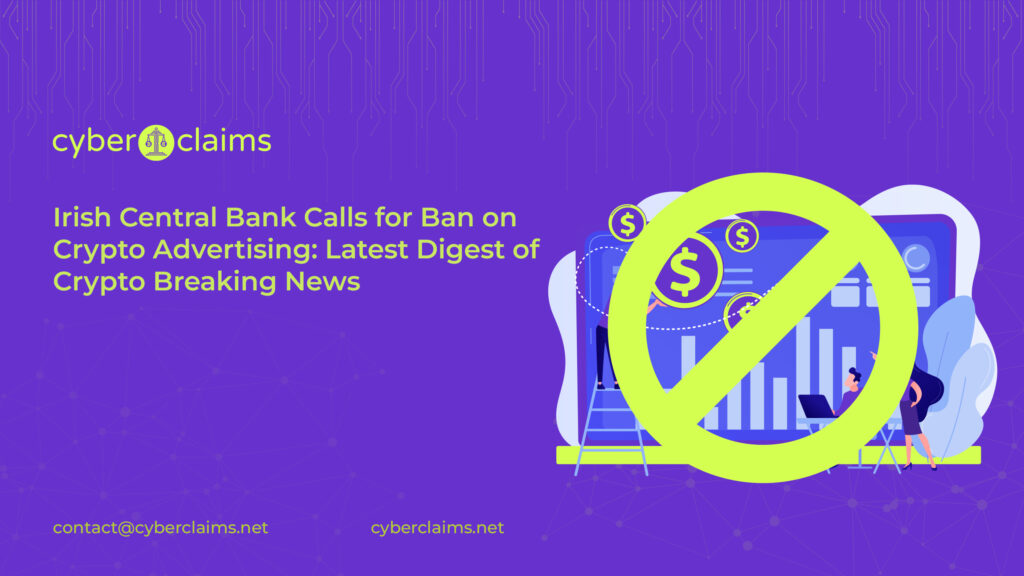The Governor of the Central Bank of Ireland, Gabriel Makhlouf, recently expressed deep concerns regarding the risks posed by unbacked cryptocurrencies to retail customers during a parliamentary session in Dublin. During the session, Makhlouf stated that cryptocurrencies have “no social value whatsoever,” and likened them to Ponzi schemes, where people are essentially gambling.
The recent collapse of FTX, combined with Bitcoin’s 60% value drop last year, highlights the significant volatility of cryptocurrencies and the need for better regulation. FTX, a major player in the cryptocurrency market, experienced a shocking collapse in November 2022, which sent ripples through the entire crypto market. The fall of FTX was triggered by a report published by CoinDesk, which raised serious concerns about the company’s leverage and solvency. The report centered on FTX-affiliated trading firm Alameda Research.
The collapse of FTX resulted in a major drop in the crypto market, causing billions of dollars to be lost and leading to the market losing its $1 trillion valuation. FTX soon found itself in a liquidity crisis, as it struggled to secure funds to stay afloat. Rival exchange Binance considered buying portions of the company, but ultimately decided to back out.
The fall of FTX serves as a stark reminder of the volatility and risks associated with the cryptocurrency market. The company’s collapse raises serious questions about the regulation of the crypto market, and the need for better protection of investors. It also highlights the importance of conducting thorough due diligence when investing in cryptocurrencies. The crypto market continues to grow and evolve, and investors must be vigilant in monitoring the companies they invest in, to avoid similar scenarios in the future.
In the Central Bank’s view, the risks to financial stability posed by cryptocurrencies are “minimal,” however, there is a need for “guardrails” to protect consumers from the risks they pose. Makhlouf suggested that advertising unbacked cryptocurrencies to young adults should be banned to better protect investors, especially the young adults who are more vulnerable to such ads and investments.
This is not the first time that the Central Bank of Ireland has issued warnings about the dangers of crypto advertising. Back in March 2022, the bank issued a warning to consumers about the risk of misleading ads promoting crypto investments, particularly from social-media influencers.
Makhlouf, a member of the European Central Bank’s governing council, also spoke about the recent EU regulations on stablecoins and stated that these regulations will provide much-needed “guardrails” for stablecoins, but that more regulation would likely be needed in the future. Lately, the ambassadors of the 27 EU member states approved a new Markets in Crypto Assets Regulation (MiCA) agreement, followed by the release of its full text. The publication of the deal provided more information on the new regulations, such as the limitation of stablecoins not denominated in the euro to 1 million transactions and a maximum transaction value of 200 million euros in the euro zone. A joint letter by Blockchain for Europe and the Digital Euro Association, two crypto industry groups, pointed out that the three largest stablecoins in the world – Tether, USD Coin, and Binance USD – already surpass the transaction count and volume limits outlined in the EU’s new rules, as they account for 75% of all crypto trade volumes.
Makhlouf also emphasized that while there are minimal financial stability risks posed by cryptocurrencies, the Central Bank of Ireland is very concerned about the impact on retail customers and the potential losses they could incur from investing in unbacked cryptocurrencies.
In conclusion, the Central Bank of Ireland has made it clear that unbacked cryptocurrencies are not a safe investment for retail customers and that there is a need for better regulation to protect consumers from the risks they pose. The bank also recommends a ban on advertising such investments to young adults, who are more vulnerable to falling for such schemes. The recent EU regulations on stable coins are a step in the right direction, but more regulation may be needed in the future to better protect consumers from the risks posed by cryptocurrencies.

